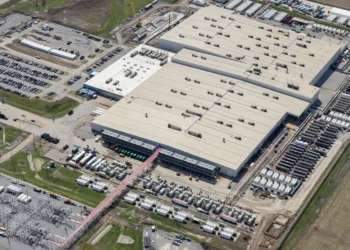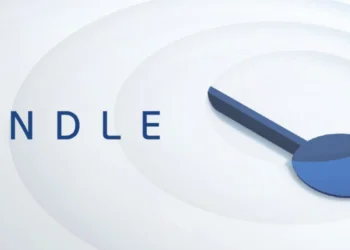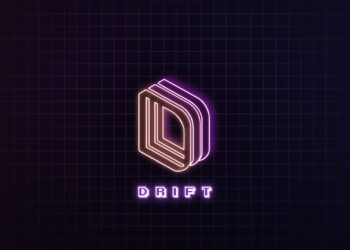Last updated on July 18th, 2022 at 03:07 pm
Land registration is critical to economic growth in developing countries. Land registration is a process by which a government institution records ownership and land-related rights. These documents serve as proof of ownership, facilitate transactions, and aid in preventing fraud. They are used by the government to collect taxes, provide services, and establish territorial control.
Real estate markets currently hold and contribute a significant portion of a country’s Gross Domestic Product (GDP). Stamp duties generated by real estate transactions flow straight into the government coffers. However, due to the lack of an efficient, dispersed, and fully digital system, this sector is plagued with issues such as land document forgery, among several other fraudulent activities.
What Are The Problems Associated With Traditional Land Registry Systems?
Establishing ownership over land
Land can be acquired through inheritance, donation, purchase, or surrender. In India, for example, property ownership is typically established by a registered sale deed in the event of land acquisition.
Property tax receipts, survey records, and other documents that prove ownership are also acceptable.
However, the purchaser is responsible for verifying the seller’s credentials and ownership status while engaging in a transaction. The sale deed is always open to challenge because it is only a record of property transfer and not a government-guaranteed title to the property.
Poor maintenance of land records
Land records in underdeveloped countries are often stored on paper in a centralized location. Not only is this paper-based system difficult to use and maintain, but it is also vulnerable to natural and man-made disasters.
Government entities are responsible for maintaining land ownership and transfer records. While almost every country has a property registration system, the quality and availability of the information vary greatly; in most cases, determining land ownership is difficult.
According to World Bank estimates, approximately 30% of the global population appears to have a legally registered title to their land.
To prove the seller’s title to the property, the purchaser frequently needs to go through a pile of paperwork, most of which is manually stored and sometimes decrepit or unreadable.
This method is inefficient and causes significant delays.
There is always the possibility that the documents will be lost due to fire or natural disasters, or even deliberate acts by corrupt authorities to the benefit or detriment of one or both parties.
Fewer than a third of countries keep digital records to ensure efficient land management in the face of rising urbanization and other environmental issues.
High amount of litigation
Discrepancies and disputes pertaining to land records and ownership account for a sizable portion of the cases pending before various judicial and administrative forums. Land-related disputes, such as those relating to the validity of land titles and records account for two-thirds of all pending court cases in the country, and such cases take an average of 20 years to resolve.
Lack of information synchronicity
In some countries, registers are maintained by separate organizations (e.g., Estate Office and Sub-registrar Office) and are updated at different times during the land transfer procedure, resulting in a lack of clarity in ownership status and burdensome chores for citizens.
Land registration is a complicated procedure due to the involvement of numerous players, such as parcel owners, government organizations, and financial institutions.
At the heart of it, all parties must trust the system that tracks land ownership and the integrity of the titles registered within it.
The Benefits of a Blockchain Land Registry System.
The use of blockchain technology in land registries has the potential to solve many of the issues associated with traditional centralized title recording. The resulting power decentralization, combined with the immutable representation of possession transfer, enables the development of collaborative, multi-sided, “trustless systems.”
Property information varies by country and jurisdiction and is governed by different legal frameworks. Nonetheless, the goal remains the same: to create a system for documenting ownership titles and allowing the authorized transfer of land property rights. This method can help merge procedures and phases into a single system, potentially increasing transparency by making data publicly available in a secure environment, minimizing fraud, and assisting in the resolution of ownership disputes.
The blockchain-enabled solution established immutable records for land ownership, which were subsequently digitized and stored permanently on the system, allowing any change in ownership of these titles to be tracked. Any new transaction, such as a subsequent sale or title change, will be immutably recorded on the blockchain while staying accessible to other stakeholders like utilities, insurance, etc.
Examples of Countries That Have Adopted the Blockchain Land Registry System
Honduras
Honduras is a Central American country with a population of approximately 9.8 million people. From an economic perspective, the country is characterized by an unequal income distribution and high underemployment.
Land ownership is unequally distributed and primarily concentrated in private hands, whether in large estates (latifundios) or smaller lots (minifundios). A large proportion of minifundistas do not own their land.
Property disputes, violence, the relocation of indigenous people, and fraudulent land takeovers have all resulted from a lack of clear ownership rights.
The current Honduran land market is inefficient due to cadastral inadequacies, inadequate land information, the validity of property titles, and the lack of a comprehensive land register. The solution to this is to use a distributed tamper-proof blockchain database to upgrade the country’s land registration.
In January 2015, officials from Factom, a technology business, and Epigraph, a software title company located in Austin, Texas, met with Honduran government authorities to examine the prospect of building a new land register system.
The most significant concern was the absence of backup for tangible land title documents. “These are new economic zones with flexible and independent management to support economic development and growth.”
The digitization of land registration records for the rest of the country would require the conversion of existing land titles. This would necessitate additional steps, such as verifying the authenticity of existing titles before allocating land rights (a resource-intensive task unrelated to the technology implementation).
Factom proposed a blockchain-based solution layer to maintain a permanent, timestamped record on top of the Bitcoin blockchain. Factom’s data structures consist of: Directory blocks, Entry blocks, and Entries. Data entry is one of the weak points in a centralized system. A Notary-Registry-Email verification with metadata for a visual verification check was necessary to overcome this limitation. After the transactions are validated, they are stored in the blockchain; otherwise, the process starts again.
In mid-2015, the two sides of the Honduran government signed a Memorandum of Understanding (MoU), followed by a non-binding letter of intent for a joint venture. The pilot project (proof-of-concept) would begin in La Ceiba’s registry, the fourth largest city.
Despite several press stories about this program, the Honduran government never publicly commented on it; only Factom staff provided updates. Due to the imminent presidential elections, the project was paused mid-2017 and has not been restarted.
Georgia
Georgia is located in southern Asia, between Turkey and Russia, on the Black Sea. It has a population of around 3 million people, with the majority of them concentrated in the middle valley and the east around its capital city, Tbilisi. The country was a component republic of the Soviet Union that enjoyed a brief period of independence after the Russian Revolution.
It was pushed back into the Soviet Union in 1921 but gained independence when the Soviet Union disintegrated in 1991. Around this time, buying or selling land in Georgia was a cumbersome procedure.
Georgia has taken measures in recent years to combat corruption and modernize these processes.
According to the World Bank Doing Business report, Georgia ranks third in the world for the ease of registering a property since the government of Georgia modernized public registration in 2013. BitFury, a San Francisco-based provider of Bitcoin blockchain infrastructure, constructed a data centre for Bitcoin mining in Gori in 2014 with the backing of the Georgian Investment Fund.
By the end of 2015, the company announced its intention to invest $100 million in the construction of a data centre in Tbilisi, Georgia’s capital.
A few months later, in April 2016, BitFury announced a partnership with the Georgian government to create and pilot a private permissioned blockchain run by the National Agency of Public Registry (NAPR) and linked to the Bitcoin Blockchain through a distributed digital time-stamping service. After that, Bitfury and the Georgian NAPR signed a new MoU (memorandum of understanding) in February 2017 to expand the system.
NAPR can use distributed digital time stamping to validate and sign a document containing proof of property ownership. According to Georgia’s NAPR, nearly 1.3 million papers have been submitted since the land-registry project was launched in 2016.
Conclusion
- Blockchain technology is one of the best approaches to establishing a land records system because it can help preserve clear ownership records, transaction history, and transactions between multiple parties.
- It can help provide assurance about property ownership, which could pave the way for a system of “conclusive titling,” in which the government provides guaranteed titles and compensation in the event of ownership disputes.
- Litigation linked to land transfer can be reduced since title records are clear and immutably recorded in a blockchain-based system.
- This type of system can encourage corporate land purchase transactions and investment by creating a smooth marketplace for land transactions, releasing economic value and liquidity.
- Overall system transparency can be achieved through real-time audit capabilities and digitally signed and time-stamped documents.
If you would like to read more articles like this, visit DeFi Planet and follow us on Twitter, LinkedIn, Facebook, and Instagram.
“Take control of your crypto portfolio with MARKETS PRO, DeFi Planet’s suite of analytics tools”























